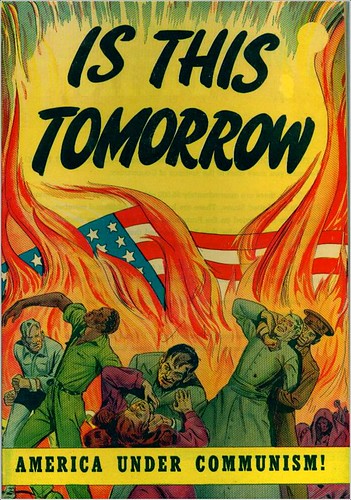
 Just hit play on the video and scroll down to read.
Just hit play on the video and scroll down to read.
Who else is going to save you?

 Just hit play on the video and scroll down to read.
Just hit play on the video and scroll down to read.

Probably not. But go back 75 years and you'll find eerie similarities. Marriner S. Eccles who served as Franklin D. Roosevelt’s Chairman of the Federal Reserve from November, 1934 to February, 1948 gave his view of what caused the Depression in his memoirs, "Beckoning Frontiers" (New York, Alfred A. Knopf, 1951):
As mass production has to be accompanied by mass consumption, mass consumption, in turn, implies a distribution of wealth -- not of existing wealth, but of wealth as it is currently produced -- to provide men with buying power equal to the amount of goods and services offered by the nation s economic machinery. Instead of achieving that kind of distribution, a giant suction pump had by 1929-30 drawn into a few hands an increasing portion of currently produced wealth. This served them as capital accumulations. But by taking purchasing power out of the hands of mass consumers, the savers denied to themselves the kind of effective demand for their products that would justify a reinvestment of their capital accumulations in new plants. In consequence, as in a poker game where the chips were concentrated in fewer and fewer hands, the other fellows could stay in the game only by borrowing. When their credit ran out, the game stopped.
That is what happened to us in the twenties. We sustained high levels of employment in that period with the aid of an exceptional expansion of debt outside of the banking system. This debt was provided by the large growth of business savings as well as savings by individuals, particularly in the upper-income groups where taxes were relatively low. Private debt outside of the banking system increased about fifty per cent. This debt, which was at high interest rates, largely took the form of mortgage debt on housing, office, and hotel structures, consumer installment debt, brokers' loans, and foreign debt. The stimulation to spending by debt-creation of this sort was short-lived and could not be counted on to sustain high levels of employment for long periods of time. Had there been a better distribution of the current income from the national product -- in other words, had there been less savings by business and the higher-income groups and more income in the lower groups -- we should have had far greater stability in our economy. Had the six billion dollars, for instance, that were loaned by corporations and wealthy individuals for stock-market speculation been distributed to the public as lower prices or higher wages and with less profits to the corporations and the well-to-do, it would have prevented or greatly moderated the economic collapse that began at the end of 1929.
The time came when there were no more poker chips to be loaned on credit. Debtors thereupon were forced to curtail their consumption in an effort to create a margin that could be applied to the reduction of outstanding debts. This naturally reduced the demand for goods of all kinds and brought on what seemed to be overproduction, but was in reality underconsumption when judged in terms of the real world instead of the money world. This, in turn, brought about a fall in prices and employment.
Unemployment further decreased the consumption of goods, which further increased unemployment, thus closing the circle in a continuing decline of prices. Earnings began to disappear, requiring economies of all kinds in the wages, salaries, and time of those employed. And thus again the vicious circle of deflation was closed until one third of the entire working population was unemployed, with our national income reduced by fifty per cent, and with the aggregate debt burden greater than ever before, not in dollars, but measured by current values and income that represented the ability to pay. Fixed charges, such as taxes, railroad and other utility rates, insurance and interest charges, clung close to the 1929 level and required such a portion of the national income to meet them that the amount left for consumption of goods was not sufficient to support the population.
This then, was my reading of what brought on the depression.

What climbing
the tallest mountain around
means
only comes clear
after the soreness fades
and you’ve resumed
your participation
in the workaday world---
You forget somewhat
the grueling feat
of staring at your boots
& trudging
grudgingly
one step
after another---
the pack on your back
growing
inconsolably heavy
since no peak
in this part of the universe
is yours unless you sleep on it
gazing at the stars
sequestered from the wind
in a rockrimmed foxhole
so the slow dawnfire
can alchemize your memory forever.
All the grimaces
borne of the severe steepness
going up
followed by the harsh descent
of the last measure
on wobbly legs
relax
into an interior smile
doubtless shared
by those who fellowed you on the climb.
A mountain matters
most in the mind
only after the body
has been sacrificed
to its beautiful demands.
"Harry Truman, it’s worth remembering, assumed the presidency when Franklin Roosevelt died here in Georgia--only one of many occasions when fate thrust a vice-president into the Oval Office in a time of crisis. It’s something to think about during the debate this evening. But our real discussion is going to be about change. Bill Clinton and I stand for change because we don’t believe our nation can stand four more years of what we’ve had under George Bush and Dan Quayle. When the recession came, they were like a deer caught in the headlights, paralysed into inaction, blinded to the suffering and pain of bankruptcies and people who are unemployed. We have an environmental crisis, a health-insurance crisis, substandard education. It is time for a change."